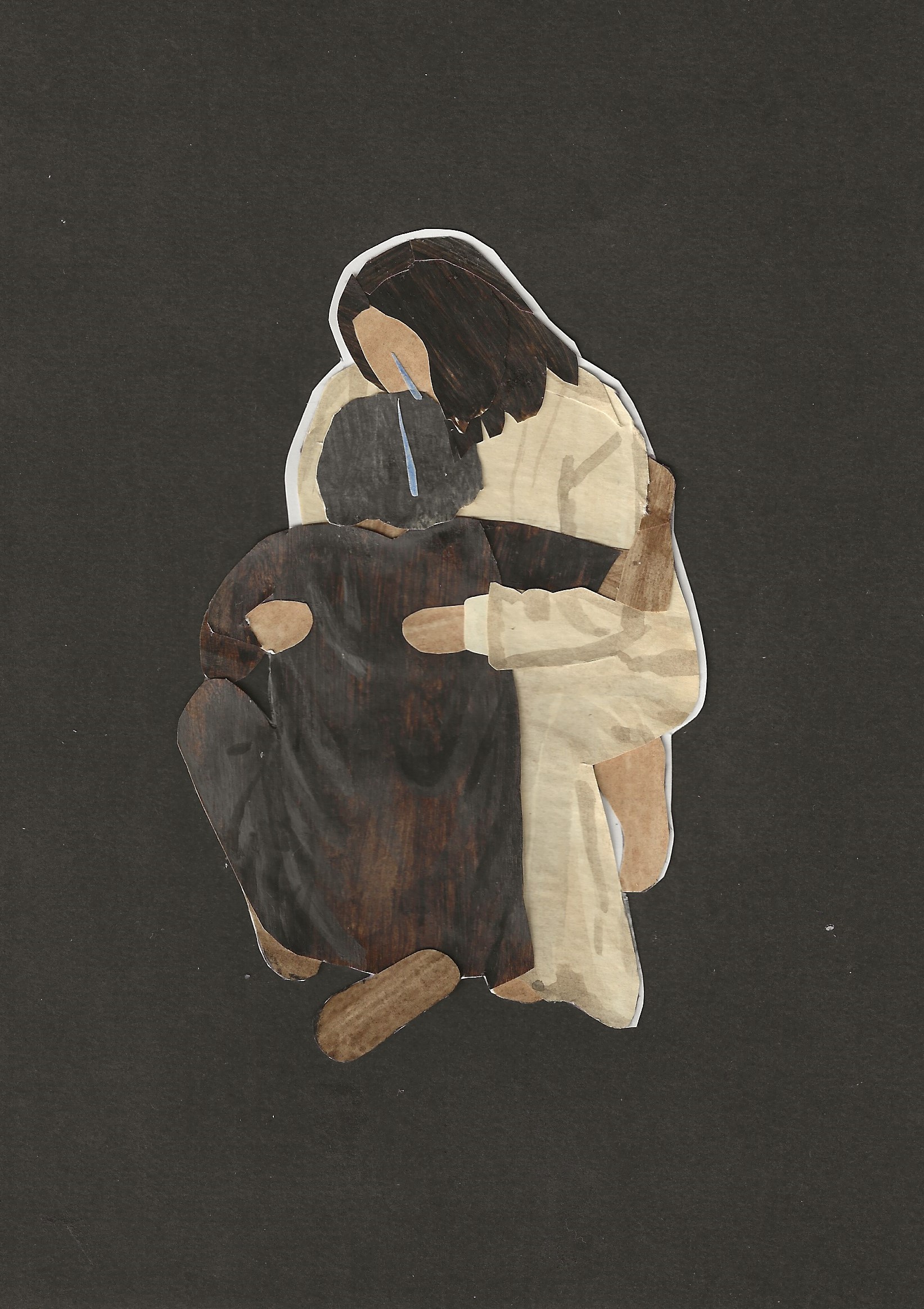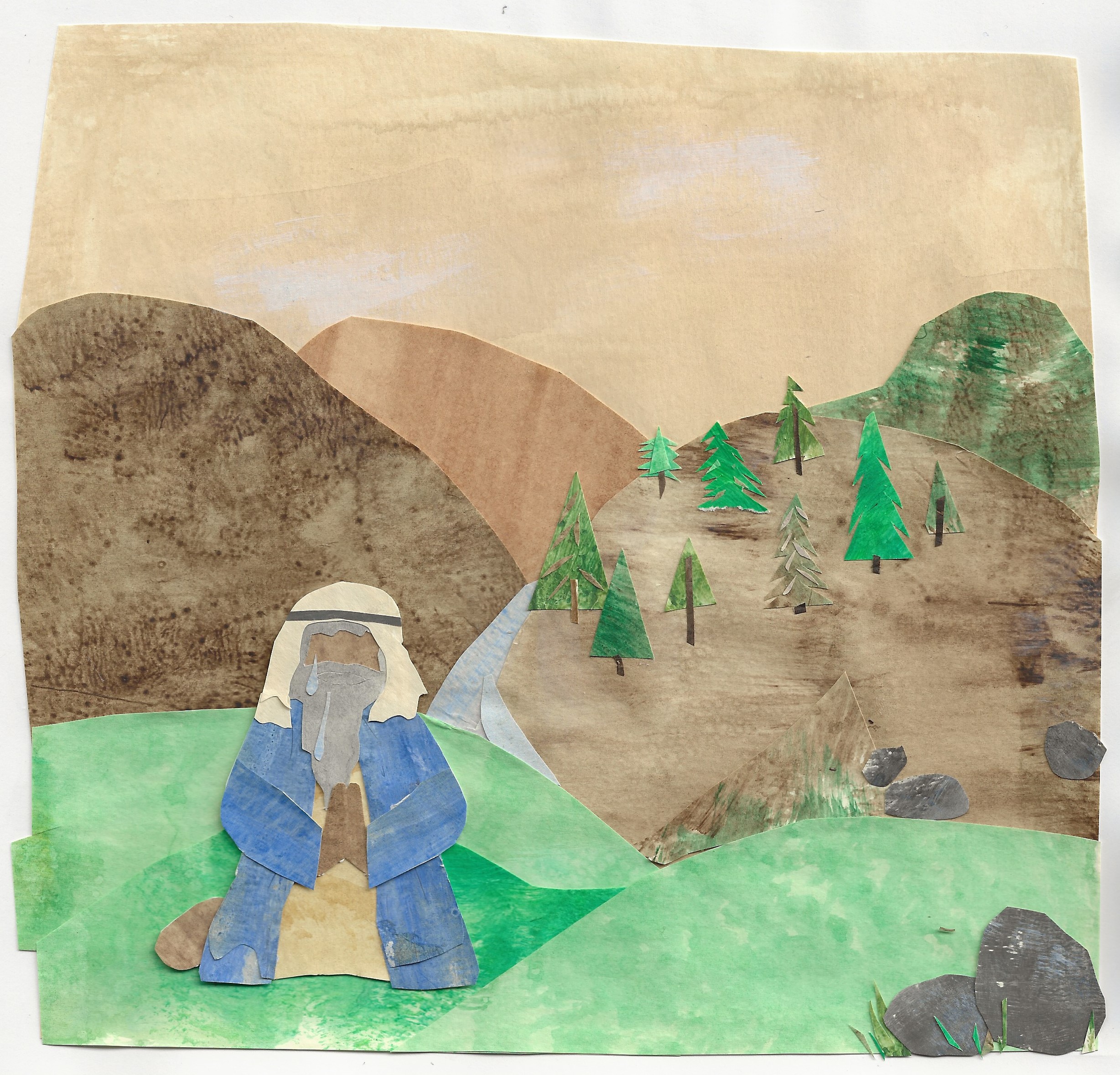

Nephi had become old. He was old, and he was going to die soon. And before he died, he wanted to write out his testimony one more time because it had changed a little bit the older he became.
First, Nephi wrote about Jesus. He wrote about how Jesus would come to earth, and how Jesus would love everyone on the earth. He would love them and show them how to return to God. Jesus would be humble and he would be baptized so we would know to be baptized. He would help people repent so we would know how to repent. He would send the Holy Ghost so that we could feel God close to us when we are sad, or scared, or lonely, or wanting to feel like at least one single person in the universe knows our name and cares about us.
And second, for the thousandth time in this book so far, Nephi wrote that God loves his children. He loves them if they are short or tall or mean or silly or lost or ugly or even if they have forgotten all about God. Even if they are angry at God. Even if they curse God, and swear that God doesn’t love them. He loves those people too, and he knows their names, and his very greatest desire, what makes God happiest, is the hope that you and me and all of us will come home someday to live with our heavenly parents forever.
Wait, you might say, isn’t that what Nephi has been saying this whole time? You’re right! That’s what all of his visions and scriptures have said from the very first time we met Nephi. But some things take a very long time to learn in our souls, even if we have already learned them with our heads. In fact, it can take a lifetime, years and years and years. And that’s why God is always telling us that He loves us, and Jesus loves us, and that we should love each other—because those things are hard to believe deep in our souls, and we forget sometimes.
Sometimes, we think, “Heavenly Father, surely you don’t love people who disobey you. You must be too disappointed to love them. And what about people who are angry with you? Or people who don’t believe you exist? What about people who hate, or hurt each other? People who will hurt your son? People who will take Jesus and hurt him and kill him? You cannot love those people.”
Nephi would think those things too, sometimes. But whenever he thought that, God’s love would shine through in his tent all the brighter like the warm sunshine. “Yes, them, Nephi,” God would say. “Yes all people. They are mine.”
But Nephi would forget sometimes. When Laman and Lemuel were mean again, or when he thought about the people in Jerusalem who wanted to kill Lehi, he would forget that God loves them, and he would be angry or sad or frustrated. You see, it is difficult to believe God loves everyone because that means that we have to try to love everyone too. And that can be really, really hard to do because people can be mean or smelly or strange or hurtful. But God asks us to have charity.
Charity, a definition:
Charity means loving people like God loves them. Charity is patient. It is kind. It is never jealous, or proud, or angry. It doesn’t look down on people because they are poor, or strange, or different. When people are sad, it says “I will cry with you.” When people are happy, it says “I will dance with you.” It protects people, trusts people, hopes in people, and stands by people to the ends of the earth. And it is the strongest, most important, most powerful force in all the earth. It is more powerful than waves, wind, storms, or fire. It is more powerful than hate, more powerful than war. And when everything else fails and falls away, charity will never, never, never, never fail.
So you see why charity is so important, and why it is so hard to learn. But Nephi learned it, I think. On the very last page he ever wrote, do you know what he said? He thought about every single person he had been angry with. Every person he had struggled to love: Laman and Lemuel and their children who had fought his family in so many wars; the people in Jerusalem who wanted to kill Lehi; the people who would come to the Promised Land someday and would hurt the people already living here. All of these people were imperfect, and had done and would do bad things. Terrible things. And in his old age, Nephi was becoming more like God: instead of feeling angry or bitter or hurt when he thought about these people, he felt love. Deep in his soul, for the first time in his life, he felt charity filling him up like a warm glass of milk spilling over and over and over.
I have charity for my people, he wrote, including Laman and Lemuel. I have charity for the people in Jerusalem. I have charity for the Gentiles who will come and live here someday. And I believe that God loves them. And I believe that many of us, if not all of us, will be saved and will live with our heavenly parents and with Jesus someday.”
Nephi breathed out a long sigh. His hand shook as he put his pen down. “Heavenly Father,” he said, “I have tried. I have tried. I am trying.” And God gathered Nephi, who was old and weak and tired, up into his arms like a child. “Nephi,” he said, “It makes my heart glad when you try.”












